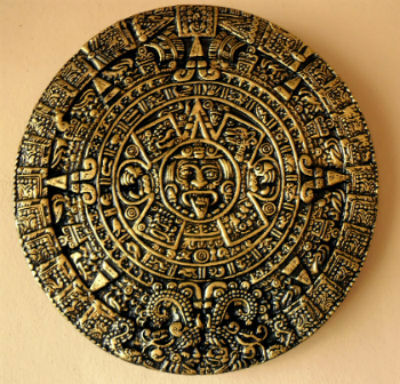THE Counting Time in History it varies according to each people and time.
The first peoples made their calendars with reference to the cycles of nature, their beliefs and their customs.
Therefore, not all countries follow the same calendar.
Chronological Time and Historical Time
Chronological time is defined as the time in which human activities take place: birth, growth, going to school, parties, etc.
Historical time is the events that mark a people, a nation, or sometimes humanity.
As an example we could cite a war, the construction of a great work, the discovery of a cure for a disease, etc.
As chronological and historical times do not always coincide, there are peoples who live different historical moments in the same chronological time.
Example: despite living in a computerized society, many people still do not have access to this technology.
Even within the computerized society there are several levels of connection as well.
Religion
The religion of an individual and a people is perhaps the element that most influences the creation of a calendar.

Jewish calendar with the names of the months in Hebrew and their correspondents in the Christian calendar
You Jews they count the time since the creation of the universe, which for them would have occurred about six thousand years ago.

Islamic calendar with Arabic month names and their corresponding Christian calendar
You muslims have as reference the year in which Mohammed fled from Mecca to Medina, this was 622 years after the birth of Christ. In countries like Saudi Arabia this is the calendar observed.

Christian calendar and liturgical time observed by the Roman Catholic Church
To the Christians events are recorded between what happened before Christ (a. C.) and after the birth of Christ (d. Ç.).
For Western history, the dates referenced before Christ must be followed by a. C., since the events that occurred later do not need the acronym d. Ç.
Importantly, not all Christian churches follow this calendar. The Orthodox Catholic Church did not adhere to the Gregorian reform and kept the Julian calendar.
Read more about Calendar History and Origin.
When we refer to the first century we are focusing on the events that took place between year 1 and year 100.
O second century focuses on the events that took place between the year 101 and the year 200.
O third century understand the facts that occurred between the year 201 and the year 300.
we live today in XXI century which corresponds to the facts that occurred in the period that began in 2001 and will last until the year 2100.
The current division of history comes from eighteenth-century scientism and enlightenment and nineteenth-century positivism.
The natural sciences give great importance to the systematization and classification of objects and this ended up influencing the human sciences.
In this way, the writers of this age determined that what would distinguish civilized peoples would be writing. Those who did not develop it would therefore be regarded as barbarians.
The peoples who lived before the emergence of writing they are referred to in the books as prehistoric peoples, not being part of the four great periods of human history.
Prehistory is studied in two major periods:
- Stone Age: it is included between the appearance of the first hominids to more or less 10000 a. Ç.,
- Age of Metals: when hominids started making objects with metal. Lasts from 5000 a. Ç. until the appearance of writing, around 3500 BC. Ç.
The Ancient Age or Antiquity is told from the appearance of writing, more or less 4000 years a. a., until the fall of the Roman Empire, in the year of 476 (V century).
This period is also divided according to the geographical location of the peoples. Thus we have:
- eastern antiquity:including Egyptian, Mesopotamian, Phoenician, Hebrew and Persian civilizations;
- Western antiquity or classic:which involves Greeks and Romans.
The Middle Ages are a period of approximately one thousand years. It begins with the fall of the Roman Empire, in 476, and goes on to the taking of Constantinople by the Ottoman Turks in 1453 (15th century).
This period is divided into:
- High Middle Ages:period between the 5th and 11th centuries, which corresponds, in terms of Europe, to the formation, development and heyday of the feudal system;
- low middle age:period between the 11th and 15th centuries, which corresponds to the disintegration of the feudal system and the consequent transition to the capitalist system.
The Modern Age is the historical period that extends from 1453 (15th century) to 1789 (18th century) beginning of the French Revolution.
On the economic plane, this period was marked by the development of commercial (or mercantile) capitalism, the initial form of the capitalist system.
It was a time marked by voyages of maritime expansion, where Portugal carried out the First Great Navigations.
The Contemporary Age is the period that extends from the 18th century to the present day.
Over these decades, the Industrial Revolution reached its culmination. It is an era marked by the two great world wars.
In Latin America, the beginning of the Contemporary Age was marked by the independence struggles that shaped the continent's new political map.
Timeline
In the West, where the Christian religion predominated, history was taught as a discipline that had a beginning, middle and end.
The beginning would be the birth of Christ, the middle would be the current story and the end, the moment when Christ returned to Earth.
In this way, the "timelines" became popular in the western world:

However, not all people thought that time was a straight line.
For the Mayans, Aztecs, and other Native Americans, time was a repetition, cycles that happened again and again eternally.
Therefore, the Aztec calendar was presented in a circular and non-linear way:

Aztec Sun Stone
